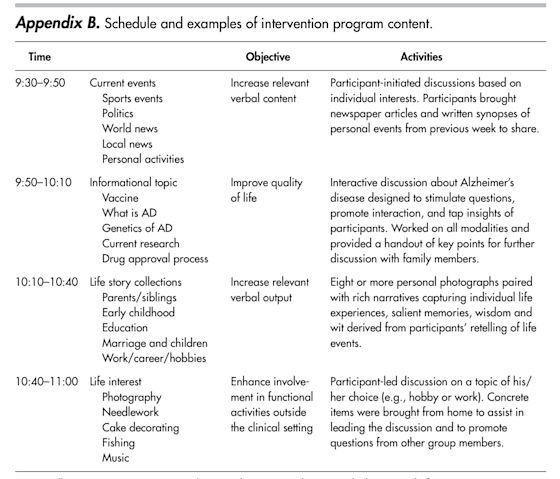Overview
Alzheimer’s disease (AD) is a progressive brain disease characterized by memory loss, verbal decline, emotional symptoms, and an overall decline in functioning. There are several interventions available for patients with AD such as medications, cognitive-communication programs, behavioral therapies, and alternative treatments. This randomized clinical trial compared the combined effect of both cognitive-communication therapy and the medication donepezil versus donepezil only in patients with diagnosed mild to moderate AD. The cognitive-communication program included 12 hours of interventions over 8 weeks including participant-led discussions, homework, interactive sessions discussing AD, and group discussions of life events. After 12 months, those receiving both the medication and the cognitive-communication intervention demonstrated the greatest benefit in their apathy, irritability, discourse, functional abilities, and overall global performance. This study outlines the benefits of cognitive training when administered in conjunction with drug treatments – as compared to drugs alone – in slowing the rate of disease symptoms in mild to moderate AD.
Appendix B demonstrates a typical schedule used for the intervention program consisting of group communication sessions over topics such as AD, family history, and interests.



